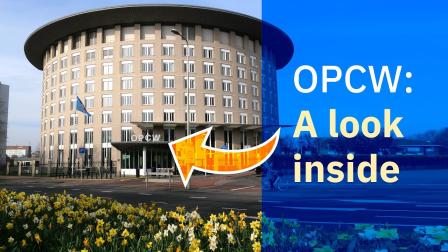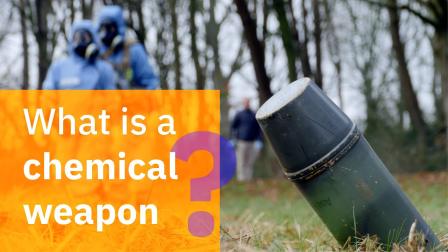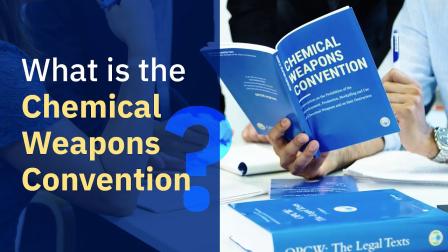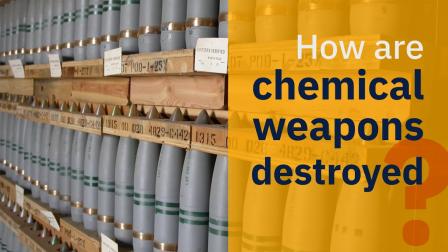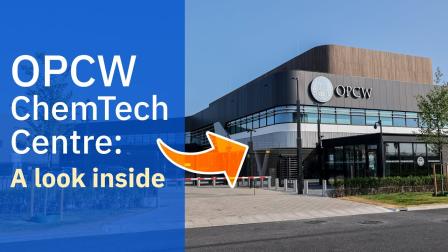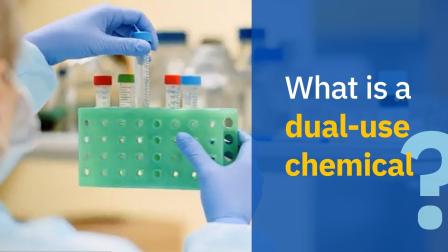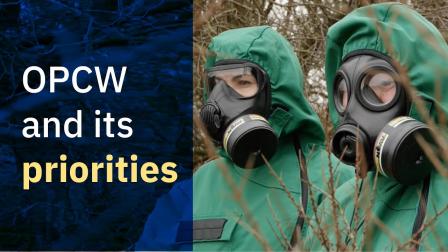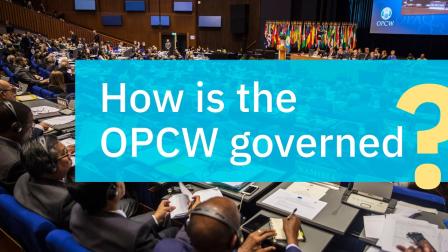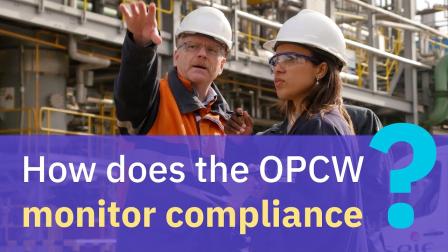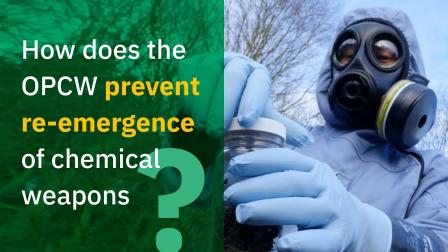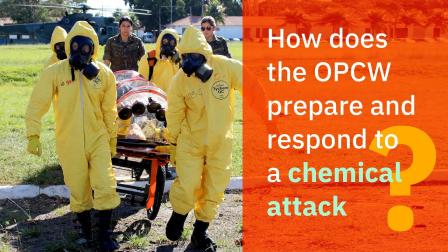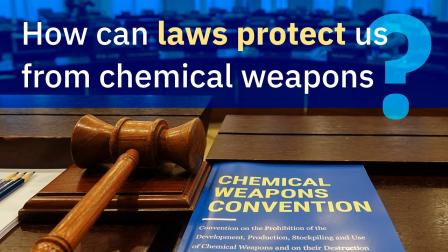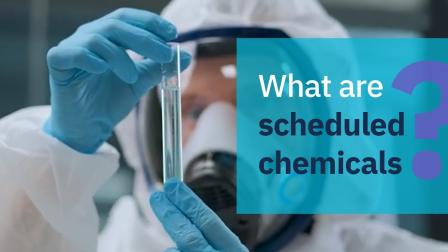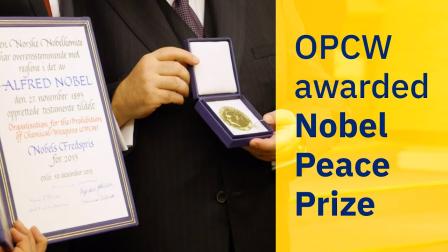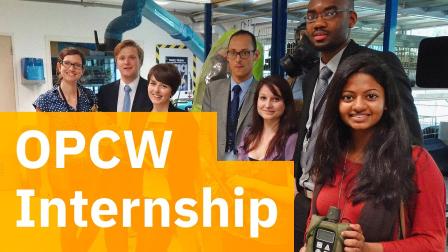OPCW at a glance
What is a chemical weapon?
Learn what a chemical weapon is and what it isn’t, according to the Chemical Weapons Convention.
What is the Chemical Weapons Convention?
Learn about the main features of the Chemical Weapons Convention and how these work to permanently eliminate chemical weapons from our world.
How are chemical weapons destroyed?
Learn how the OPCW has verified the destruction of all declared chemical weapons stockpiles.
OPCW ChemTech Centre: A look inside
Take a look inside the OPCW’s Centre for Chemistry and Technology, the OPCW ChemTech Centre. The Centre is a flagship facility that houses the OPCW Laboratory, its Technology and Training Hub, and international cooperation activities.
What is a dual-use chemical?
Learn about dual-use chemicals, such as isopropyl alcohol and phosgene, which are banned as chemical weapons but can be used for legitimate, peaceful purposes under the Chemical Weapons Convention.
OPCW and its priorities
Learn what OPCW’s Member States are doing to permanently rid the world of chemical weapons.
How does OPCW monitor compliance with the Chemical Weapons Convention?
Learn about the OPCW’s verification measures including how Member States declare relevant chemicals and facilities and how the OPCW verifies the accuracy of these declarations.
How does the OPCW prevent the re-emergence of chemical weapons?
Learn what OPCW Members States are doing to help prevent the re-emergence of chemical weapons and reduce the threat of chemical terrorism.
How does the OPCW help prepare for and respond to a chemical attack?
Learn how the OPCW helps Member States prepare for a chemical attack and how it can assist in responding to a chemical attack, should one occur.
How can laws protect us from chemical weapons?
Learn how national laws and regulations help countries implement the Chemical Weapons Convention within their own borders.
What are scheduled chemicals?
Learn about the classification of chemicals into ‘Scheduled Chemicals’ under the Chemical Weapons Convention and the differences between Schedule 1, Schedule 2, and Schedule 3 chemicals.
OPCW awarded the Nobel Peace Prize
Learn why the OPCW received the Nobel Peace Prize and what the award means for the effort to permanently eliminate chemical weapons.

